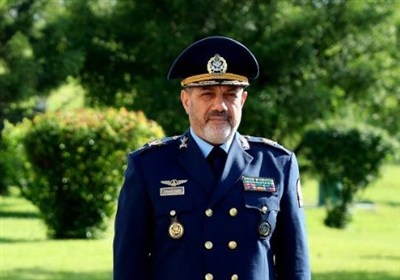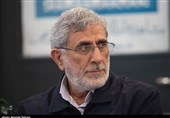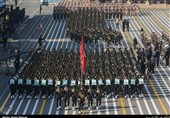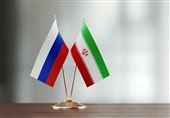European Union Adopts Tough Brexit Strategy
TEHRAN (Tasnim) - European Union leaders unanimously adopted their Brexit strategy at a special summit in Brussels on Saturday, in a show of unity ahead of two years of tough talks with Britain.
The 27 leaders quickly agreed on the negotiating guidelines as they met without Britain for the first time since Prime Minister Theresa May triggered the divorce process a month ago.
They say talks on a future trade deal with Britain can only start once London agrees divorce terms on citizens´ rights, its exit bill and Northern Ireland.
"Guidelines adopted unanimously. EU27 firm and fair political mandate for the Brexit talks is ready," EU President Donald Tusk said on Twitter, shortly after the summit began.
Leaders adopted the guidelines, unchanged, within one minute, an EU source said, The News International reported.
Tusk earlier said leaders "need to remain united as the EU 27" but said it was "also in Britain´s interest" if unity boosted the chances of a swift Brexit deal.
May this week accused the EU of ganging up on London, in a war of words with German Chancellor Angela Merkel who said Britain had "illusions" about the talks.
Brexit has offered the EU a fresh chance at unity after years of bitter internal divisions over the euro and migration, although many still fear they could fall out during the talks.
French President Francois Hollande said as he arrived that "the aim of the summit is unity", adding that "there will inevitably be a price and a cost for Britain."
Merkel said the EU wants "good relations" with Britain but added that "we also want to defend, at 27, our common interests -- so far we have done extremely well."
The EU´s chief Brexit negotiator, Michel Barnier, said the bloc had a "clear line" on the talks. "But this unity is not directed against Britain, I think that it is also in its interest," he said.
The EU 27 have considerably toughened the guidelines since Tusk first unveiled them a month ago, with Brussels also drawing up a detailed list of citizens´ rights.
Tusk said this issue -- the fate of three million EU citizens living in Britain and one million Britons on the continent -- "must be number-one priority for EU and the UK."
Officials hope for agreement on this by the end of the year.
In a further move that will rile London, the EU is also set to back automatic membership for Northern Ireland if it reunifies with Ireland, and call for Spain to have a say over any deal that affects Gibraltar.
The leaders will also discuss for the first time the spoils of Brexit -- the relocation of EU medical and banking agencies that are currently based in London.
The EU guidelines say that only when "sufficient progress" has been made on divorce issues can these trade talks begin, with sources saying they hope to do that by the end of the year. EU leaders were discussing how to define this progress after approving the guidelines at the summit, EU officials said.
While the EU says citizens´ rights is a priority, the most touchy issue of all is likely to be Britain´s exit bill.
This is estimated at around 60 billion euros ($65 million), which mainly covers financial commitments made by the bloc while Britain was a member.
The bill is politically toxic for Britain but also risks causing divisions among EU states as they debate how to plug any holes in the EU´s budget.
May´s decision to call a general election in Britain on June 8, in a bid to shore up her mandate and strengthen her negotiating position, has only stiffened their resolve.
The elections are "an internal problem she wants to resolve in the Conservative party, to have not a hard Brexit or a soft Brexit, but Theresa´s Brexit," said Luxembourg´s prime minister Xavier Bettel.
Actual Brexit talks are not expected to begin until after the British election, although the EU is set to give an official mandate to Barnier on May 22.





